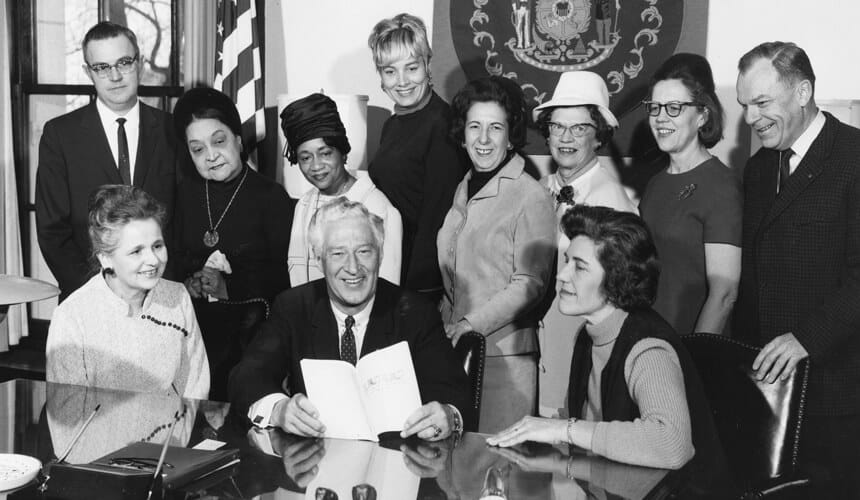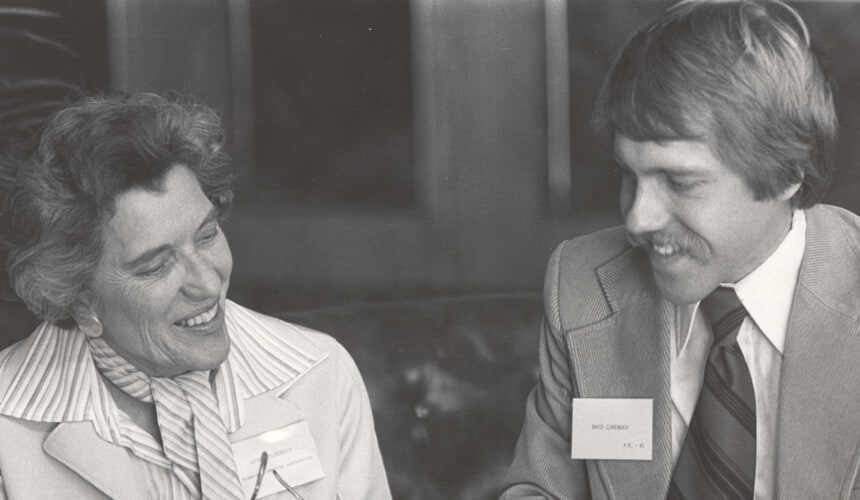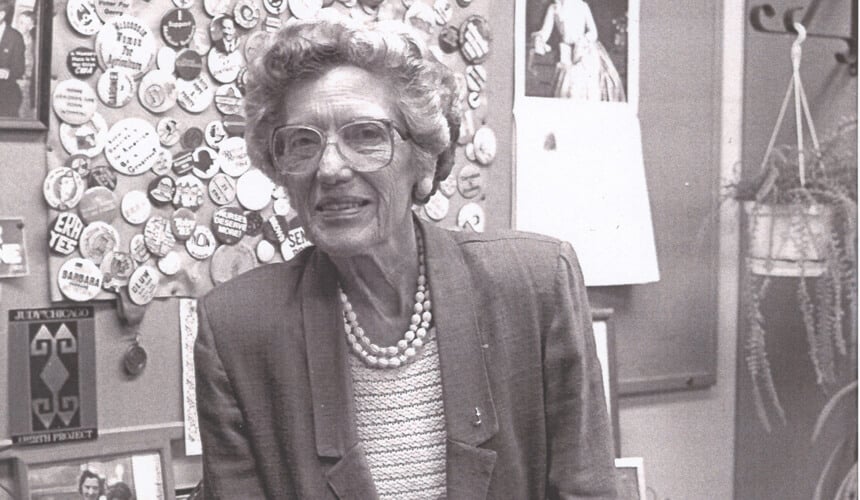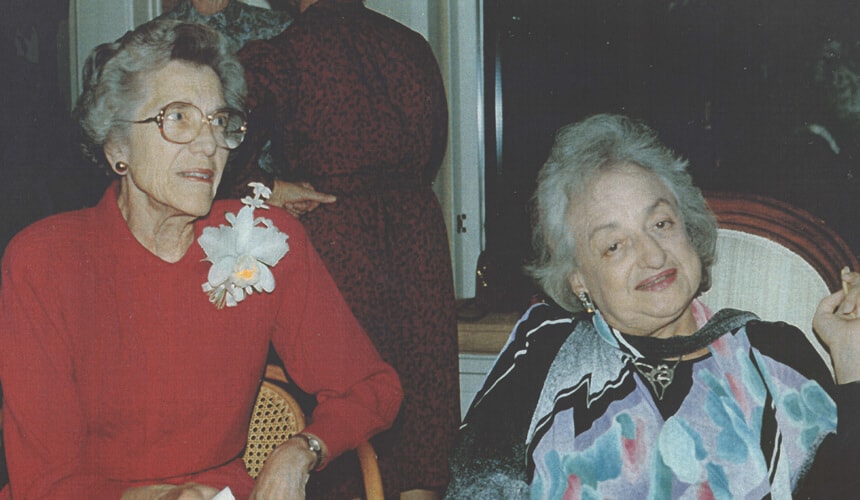Kathryn Clarenbach
Wisconsin’s Foremost Feminist
Betty Friedan. Gloria Steinem. Bella Abzug.
Their names are top of mind in the history of the modern women’s movement. But what about Kathryn Frederick Clarenbach BA1941, MA1942, PhD1946?
She lived her life with little fanfare, but with unquestionable purpose. “I don’t know at what stage of my life I learned that life is not a popularity contest,” she said during an oral-history interview. “[I was raised to ask the questions], ‘Can you live with yourself if you do this?’ or ‘Do you think that’s a wise thing to do?’ “
Clarenbach began taking a stand for women while she was a student at the UW. In the late 1930s, female students weren’t allowed to sit in Memorial Union’s popular gathering spot, the Rathskeller. She studied for exams in the building’s Paul Bunyan Room but first walked slowly through the Rath, a quiet act of defiance.
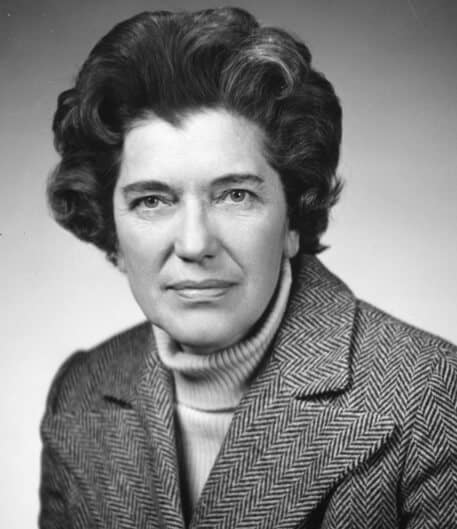
Clarenbach in 1972. (Image courtesy of the UW Archives, #S00155.)
After receiving her doctorate and teaching elsewhere, Clarenbach returned to Wisconsin and was asked to create an education program for women for the UW-Extension. She pushed for a state Commission on the Status of Women, and, as its head for more than a dozen years, she urged lawmakers to revise statutes that discriminated based on sex. Once a week, she hit the airwaves, talking about women’s issues on WHA radio’s Morning Edition.
The commission had no budget for its first 10 years, but in keeping with the Wisconsin Idea, the UW’s administration encouraged Clarenbach to use university resources. Under her leadership, the commission identified 280 provisions in state statutes that — by their very language — treated men and women differently.
From The Park
The whole nation suffers from the failure to make use of one half of its brainpower and ability.
Source: Used by permission of copyright holder.
Although her initial work centered on Wisconsin, Clarenbach’s strong organizational skills soon led to a national mobilization. After convincing 26 other women to kick in $5 each as dues, she helped to found the National Organization for Women, becoming its first chair in 1964. She took on a massive event in Houston in 1977, coordinating the first — and only — conference on women sponsored by the federal government.
Clarenbach’s ability to focus the sometimes unfocused, yet earnest work of the women’s movement allowed her to organize “a feminist coalition of unprecedented breadth and range,” the late UW historian Gerda Lerner once said.
Clarenbach’s David, who served nine terms in the Wisconsin State Assembly, captured her essence. “My mother was a very soft-spoken woman … brilliant beyond imagination,” he says. “She wasn’t a marcher. She didn’t speak at rallies. My mother made sure the trains ran on time.”
 78° F
78° F